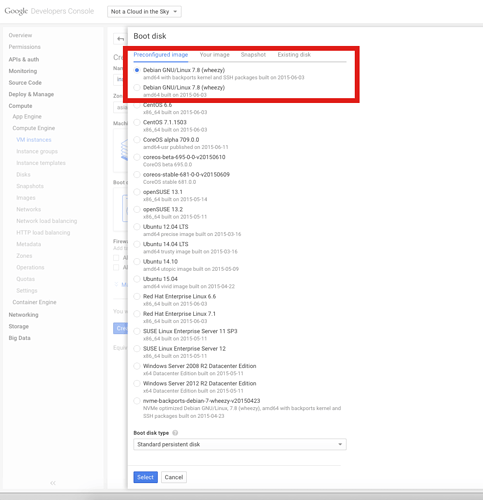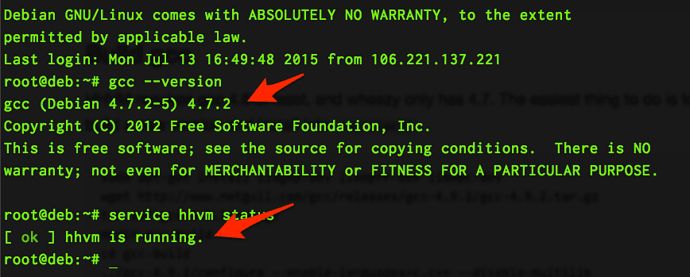On a newly provisioned server, I ran the following command:
ee stack install --web
…resulting in a big red error message

Oops Something went wrong!!
Check logs for reasontail /var/log/ee/ee.log& Try Again!!!
So I check the error log, as it says using the following command:
cat /var/log/ee/ee.log
According to the log:
dpkg: error processing /var/cache/apt/archives/hhvm_3.7.1~wheezy_amd64.deb (--unpack):
subprocess new pre-installation script returned error exit status 100
I tried running the installation command again:
ee stack install --web
…same resulting error. The Installation process for HHVM fails, causing the installation to halt. I have included the relevant content of the ee.log file below:
Fetched 1,505 kB in 3s (420 kB/s)
Reading package lists...
2015-06-02 20:06:03,892 (INFO) ee : Installing packages, please wait...
Reading package lists...
Building dependency tree...
Reading state information...
The following NEW packages will be installed:
hhvm
0 upgraded, 1 newly installed, 0 to remove and 0 not upgraded.
Need to get 0 B/27.8 MB of archives.
After this operation, 0 B of additional disk space will be used.
(Reading database ... 34696 files and directories currently installed.)
Unpacking hhvm (from .../hhvm_3.7.1~wheezy_amd64.deb) ...
invoke-rc.d: unknown initscript, /etc/init.d/hhvm not found.
dpkg: error processing /var/cache/apt/archives/hhvm_3.7.1~wheezy_amd64.deb (--unpack):
subprocess new pre-installation script returned error exit status 100
Errors were encountered while processing:
/var/cache/apt/archives/hhvm_3.7.1~wheezy_amd64.deb
E: Sub-process /usr/bin/dpkg returned an error code (1)
2015-06-02 20:06:04,825 (INFO) ee : Oops Something went wrong!!
2015-06-02 20:06:04,826 (ERROR) ee : Check logs for reason `tail /var/log/ee/ee.log` & Try Again!!!
Anyone know why this is happening?




